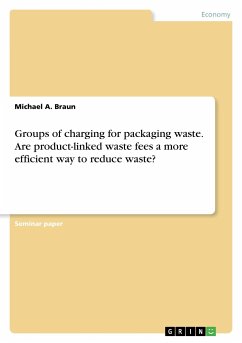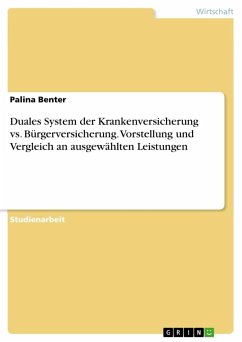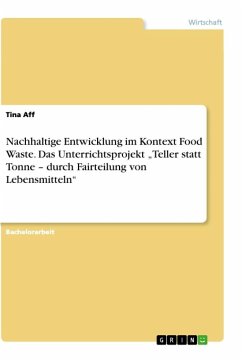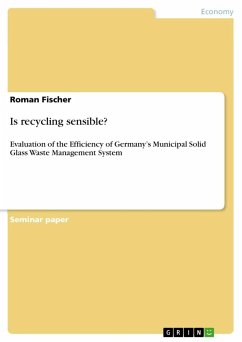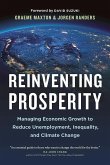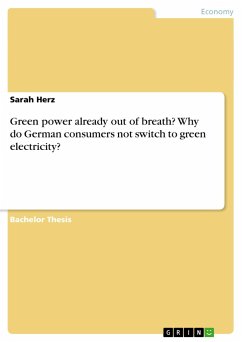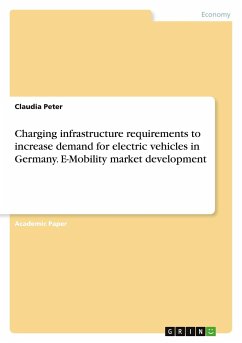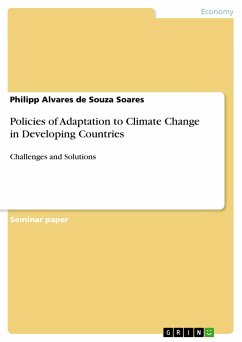Seminar paper from the year 2003 in the subject Economy - Environment economics, grade: 1,5, University of Abertay Dundee, 31 entries in the bibliography, language: English, abstract: Whether waste is an economic good or bad is already not clear decided (although this is changing in the last years) - and probably can not as well. Instead this depends on different assumptions that have to be made and about the way how a system is installed. But as a main thesis, the essay proclaims and analyses the 'hierarchy theory' which focuses on the "R's" - reduction, reuse, recycling and recovery. The priority of reduction is in most of the western countries accepted, and only the transformation into practical guidelines and legislation needs to be improved sometimes, as examples show.For a successful introduction of such organized waste management system it is necessary to have political support as well a support of all other groups involved. To gain this, especially of consumers, information and education helps. Moreover, clear benefits for businesses have to be provided so that they are encouraged to invest in new technologies and innovation. Therefore, related to the experiences made with the Duales System Deutschland (DSD) in Germany, some practical guideline are discussed and stated.

